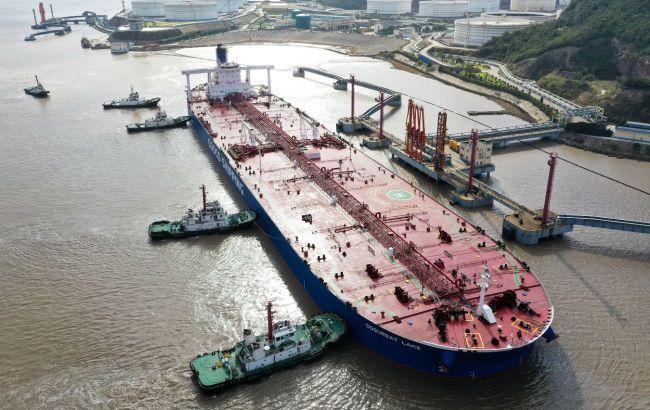Indonesia decides to purchase cheap Russian oil
 Indonesia decides to buy cheap Russian oil (Getty Images)
Indonesia decides to buy cheap Russian oil (Getty Images)
Indonesian state-owned oil refiner Pertamina has added Russian crude oil grades to its tender lists for the purchase of crude oil in September, according to Reuters.
Pertamina has not purchased Russian oil for many years and has not done so since the start of Russia's war against Ukraine in 2022, although Indonesia has not joined Western sanctions. Pertamina last purchased ESPO Blend and Sokol crude oil from Russia more than 10 years ago.
Western sanctions against the Russian energy sector, including the EU embargo on Russian oil and the price cap mechanism, have made China, India and Turkey the main buyers of Russian oil.
Pertamina has requested Russian Urals crude, as well as high-sulfur Kirkuk, Jubilee, Al Shakheen and other grades to be delivered to its Cilacap refinery on September 15-17. Pertamina also requested Sokol crude among the crude grades to arrive at Cilacap during September 18-20. Sources said that one of the tenders closed last week and the other on Monday. The results have not yet been announced.
Price cap
One of the sources familiar with Pertamina's plans said that the company can only buy Russian oil if it is sold in accordance with the price ceiling provision. The restriction allows Western shippers and insurers to participate in the Russian oil trade, provided that the oil is sold at less than $60 per barrel.
A spokesman for Pertamina's refining unit said that the company will purchase crude oil that meets the specifications of its refineries and will comply with all relevant regulations. "If we purchase crude oil from Russia, it will be done under price cap mechanism," spokesperson Hermansyah Nasroen said.
Western measures led to half of Russia's oil and oil products exports going to China in 2023. India's share has increased over the past two years to 40%. Europe's share of oil exports from Russia fell tenfold to about 4-5%.

